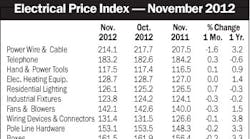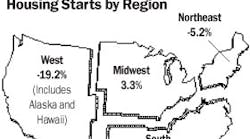The manufacturing sector has led the recovery from the recent recession, and electrical distributors have shown their interest by investing in automation-oriented acquisitions and new services. Frank Hurtte of River Heights Consulting, who has decades of experience in automation and control on both the manufacturing and distribution sides, attended a recent meeting of control system integrators and reports on the blurring line between distributors and system integrators.
The Control Systems Integrators Association (CSIA) hosted its annual business meeting in Orlando, Fla., on April 27-30. The attendance of 450 including 120 attendees from vendor partners indicates the strong business levels being enjoyed by CSIA members.
National distributors. National chain distributors have begun to key in on the value of this group. The opening night reception was hosted by Anixter. Three years ago, Anixter moved into the automation space and CSIA has been a visible part of their plan from the start.
With their background as a leading supplier of wire and cable into the datacom market, Anixter has positioned themselves as experts in automation data. Capturing, moving and storing automation information is part of their sales pitch. Anixter’s reception featured 12 vendors/manufacturers.
Graybar is another national chain distributor showing deep interest in the systems integrator market. Graybar sponsored a booth during the vendor partner showcase. Graybar is a distributor with massive resources — attempting to muscle their way into the automation business. With connection to Group Schneider and other well-known manufacturers, one might wonder if some type of concerted effort is underway.
This national move into the automation business and early support by a number of mainstream automation companies is something which must be noted. River Heights Consulting has followed the migration of national chain distributors into the automation and motion control space for the past four years. With the right economic conditions and a seeming willingness for major companies to support the effort, Anixter may soon sell enough automation to impact the industry.
Observations on the automation industry. Clearly, this is a very good time for the systems integration business. Nearly every systems integrator of any size was represented by multiple people.
The manufacturers and suppliers in the automation industry approach the Control Systems Integrators Association with a completely different mindset than distributor organizations. While they view distributors as “partners,” manufacturers think of systems integrators as “customers.” Manufacturers, who are normally stingy in their attendance of distributor association meetings, happily send two (or more) people to the CSIA meeting.
We are concerned some of the manufacturers believe the systems integrators represent a new (alternative) channel to market. In fact, off-line questions from several manufacturers centered around growing frustration with distribution and the emergence of systems integrators as a new alternative. We believe this is a fallacy.
We met two systems integration companies who off-shore portions of their engineering work. In this model the U.S.-based integrator handles customer relationships, on-site startup and service while the foreign-based partner handles coding and other engineering-intensive functions. This model could have a major impact on the way systems integration work is done. Plus, one might also wonder how this trend will affect the country-specific market shares of companies like Siemens, Rockwell, Omron and others. Engineers in India, Pakistan and other lower-cost countries will not share the same prejudices around brands.
Distributors who bank on engineering prowess as their main market differentiator may discover a closely controlled alliance between a national distributor and systems integrator partners could offset at least some of their technical advantage.
Further conflict may arise as these same distributors cross into the fee-for-service model. We believe the line between high-tech distributors and systems integrators is becoming increasingly blurred. We saw three systems integrations firms which are owned in part by local distributors.
—Frank Hurtte
Frank Hurtte is founding partner of River Heights Consulting, Davenport, Iowa, [email protected].

